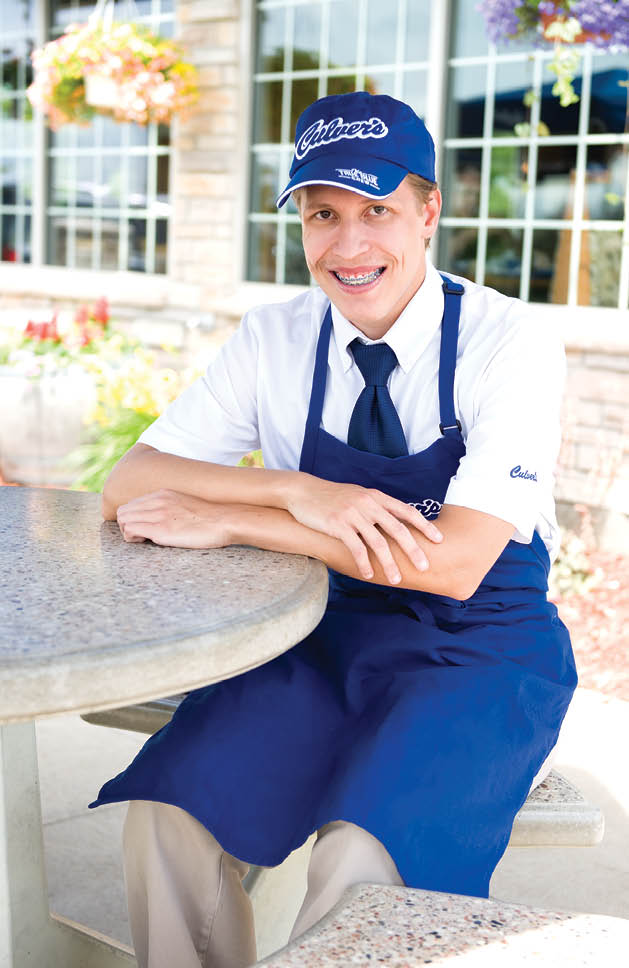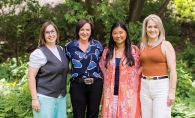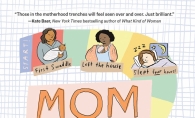When Caleb Gotz and Scott Koehnen finished their four years of high school, they weren’t quite ready to move on. Both young men, now 21, have disabilities that make the transition out of high school a challenge.
The Next Step Transition Program of South Washington County Schools offers students like Gotz and Koehnen the option to further their education after high school. The program teaches life skills, with the goal of helping people with disabilities live independently. Next Step launched nine years ago and has seen steady growth, with 67 students currently enrolled. “The program is very individualized,” says Nicole Loch, a teacher in the Next Step program. “Students have teams that are made up of parents, case managers and outside agencies in the community. Students get to explore and develop their own goals, and our role is to say, ‘How do we help get you there?’”
The program, open to 18- to 21-year-olds, operates in three primary areas: employment, post-secondary education and independent living. For some students, entering the work force is most important; their work focuses on job training. Others may go on to more schooling; many plan to live on their own, which Next Step prepares them for. The students often walk at their high school graduation ceremony, but don’t receive a diploma until completing Next Step. For some, that may take a year or two, and others stay until they are 21.
Each student develops an individualized education plan at the start to create a map for where they want to end up. For Gotz and Koehnen, their biggest accomplishment has been entering the workforce. Gotz, charming and gregarious, found a position at Presbyterian Homes, a senior living facility in Cottage Grove. “Everyone who has worked with Caleb wants to hire him,” Loch says. Gotz started out volunteering at Presbyterian Homes as part of his training. Before long, the staff realized how much they loved having him around, and Gotz received his first job. He’s now moved on to a new adult day program, working with a job coach at different businesses in the community to find the best fit for his next endeavor.
Part of what helped Gotz was working in the Minnesota State Fair’s recycle center. Next Step has built a relationship with the state fair to help its students get real world work experience. It has been an invaluable tool in the curriculum as it is the first time many of the Next Step students experience a full workday.
In addition to on-the-job training, students get classroom time to work on resumes and job interview preparation, or simply explore career paths they may be interested in. Students get the opportunity to meet with different employers and explore various industries to better understand the options available to them after graduating from the Next Step program.
Like Gotz, Koehnen was able to find his first job through this job training. He currently works at a Culver’s, cleaning on weekends, and will soon move into a new role as a cashier. He’s somewhat hesitant to make the leap into a role with more responsibility, but is also excited to put the skills he learned in accounting and managing finances to test on the job.
By working with different employers, the students are able to build valuable relationships that will help them in the future. Students are connected with a caseworker who can stay with them. “If a student connects with a specialist now, they develop an active case file and can get help with employment through adulthood,” says Nancy Meyer, supervisor of special education for South Washington County Schools and Next Step.
Beyond the actual job experience, both Gotz and Koehnen learned how to use public transportation to get around, and Koehnen is currently working to get his driver’s license. It’s exciting, he says, but also nerve-racking because “you have to pay attention to what all the other drivers are doing.”
While the job training is one of the first things both Gotz and Koehnen talk about regarding their experience at Next Step, their growth extends well beyond finding employment. Next Step sets aside time for recreation and leisure to help students learn how to live balanced lives. It also teaches general life skills like understanding credit cards, debit cards and bank accounts. Both Koehnen and Gotz mentioned the food classes they’ve taken, and they love seeing where food comes from and learning how it is made (although neither has aspirations of being a chef).
Both students, who graduated from the Next Step program in June, are planning for the future. Koehnen, having worked his way up the ladder at Culver’s, is hoping to get a job at FedEx. He likes the idea of an industrial job and says he would love to work with packages on the truck. Gotz sees himself working in a high school someday—specifically, he’d love to work at East Ridge in Woodbury. He wants to be an office worker, and loves the atmosphere of school.
“We didn’t really know what Caleb’s next step, no pun intended, would be,” his mom, Dana Gotz, says. “We knew he could benefit from really focusing on life skills, and Next Step has done such a great job of doing that.”
For as much as the students get out of the program, the staff, like Meyer and Loch, get just as much satisfaction. “It is really validating that our students are so successful,” Meyer says. “There’s hope that students will be successfully employed and can achieve their goals.”

(Scott Koehnen)









